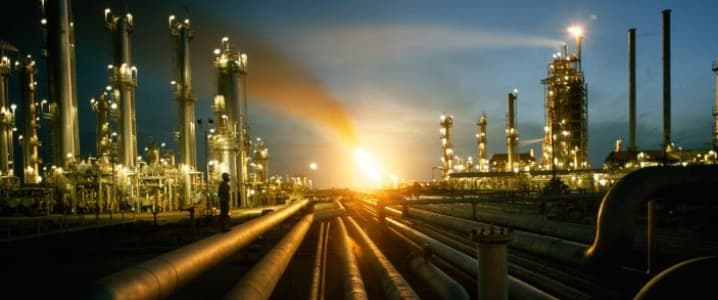The 600,000 barrels per day Port Arthur refinery has exclusively processed Saudi Arabian crude since 1988, when Saudi Aramco first bought a stake in the facility—the largest of its kind in the United States.
But Riyadh’s new strategy of constricting exports to the United States, along with several Asian countries, has reduced supplies to Motiva and several other refineries across the country.
"The drop is huge," said Amrita Sen of Energy Aspects in London. "It’s not just that Saudi exports are low, but they have been low for several months.”
For months, the KSA has schemed to reduce the size of global inventories, which would spur the world’s major oil consumers to purchase more fuel, thus ending three years of a stubborn oil glut. The latest Brent barrel prices have hovered in the $62 range, which is a less than $10 jump from the January 2017 rate. At the time, the Organization of Petroleum Countries (OPEC) had not begun implementing its 1.2 million-barrel production deal. Eleven months in, the results are lackluster.
Back in 2016, Saudi Arabia touted that the success of its Aramco initial public offering, due to take place in 2018, rested on a $60 per barrel price. That price would give investors confidence that the oil industry could be depended upon to produce profits for the next 10-20 years. Beyond that timeframe, the days of the dominance of fossil fuels in the global energy mix are numbered. Solar, wind and nuclear energies have seen unprecedented growth in recent years as nations gear up to meet their obligations under the 2015 Paris climate change agreement.
Related: Houthi Rebels Threaten To Attack Saudi Oil Tankers
Riyadh’s decision to IPO its main company stems from Crown Prince Mohammed bin Salman’s Vision 2030 plan, which promises to diversify the oil-dependent economy toward one that specializes in finance and advanced technologies. Selling just five percent of the oil giant in the largest IPO in financial history will fund a large part of the economic restructuring plan.
Considering the KSA’s ultimate goal of ending its addiction to oil revenues, the fact that the nation dropped from being the U.S.’s second-largest oil provider to the fourth-largest in recent months, fails to ring major alarms. Iraq has picked up the slack so far. In July, the Motiva refinery increased its crude purchases from Iraq to make up for the lower supplies from Saudi Arabia.
The combination of low crude prices, reduced Saudi supplies and Riyadh’s new weapons purchases from Washington is causing the U.S. to experience a trade surplus with the KSA in 2016 for the first time since 1998. The Census Bureau says it is only the third time this has happened in the past three decades. Related: Saudi Sheikdown: Arrested Royals Offered A Deal - Your Money For Your Freedom
"The policy has been a tremendous success," Anas Alhajji, a Dallas-based oil consultant who tracks Saudi oil policy, told World Oil. "The U.S. is the only country in the world that publishes oil inventories data on a weekly basis and investors closely follow it. Saudi Arabia needed to focus on the data that matters to investors, and it did by lowering exports to the U.S."
The White House has a characteristically confident attitude about this new development in Saudi–U.S. relations.
"Our import dependence has collapsed," Bob NcNally, a former White House oil official and head of consultant Rapidan Energy Group, commented. "What should worry Riyadh is if they need to sustain the cuts not a few more months, but a lot longer.”
Other heavy crude producers have stepped up to fill supply gaps in American markets. As Libya, Iraq and Nigeria recover lost capacity, Saudi Arabia is due to be squeezed out of its North American market share.
By Zainab Calcuttawala for Oilprice.com
More Top Reads From Oilprice.com:
- Why Saudi Arabia Should Fear U.S. Oil Dominance
- New Battery Design Could Crush Tesla
- Oil Tycoon Hamm Slams EIA’s Overoptimistic Shale Forecasts


















